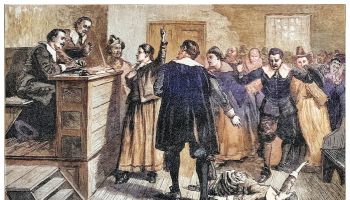In Mississippi, where mention of the civil rights movement evokes images of bombings, beatings and the Ku Klux Klan, public schools are preparing to test a program that will ultimately teach students about the subject in every grade from kindergarten through high school.
Many experts believe the effort will make Mississippi the first state to mandate civil rights instruction for all k-12 students.
So far, four school systems have asked to be part of a pilot effort to test the curriculum in high schools. In September, the Mississippi Department of Education will name the systems that have been approved for the pilot. By the 2010-2011 school year, the program should be in place at all grade levels as part of social studies courses.
Advocacy groups such as the William Winter Institute for Racial Reconciliation and Washington-based Teaching for Change are preparing to train Mississippi teachers to tell the “untold story” of the civil rights struggle to the nearly half million students in the state’s public schools.
RELATED: OPINION: U.S. Education Urgently Needs Reform
RELATED: Obama Says Education Is Most Important Issue For Black Community
“Now more than ever we are engaged in national debates about race and so much of those debates are impoverished in their understanding of history,” said Susan Glissen of the Winter Institute. “We want to emphasize the grass-roots nature of civil rights and the institution of racism.”
The program is the outgrowth of a law passed in 2006 by the Legislature. The state moves forward with statewide implementation in the 2010-2011 school year, despite an unsuccessful legislative effort to eliminate the plan this year.
Education officials looked to other states for a model, but couldn’t find one that included anything as comprehensive as what Mississippi has in mind, said Chauncey Spears, who works in the curriculum and instruction office of Mississippi’s education agency.
The Education Commission of the States didn’t know of any other state with a such a program, although it does not specifically track social studies curriculum.
Some states, including Alabama, Georgia and Arkansas, have placed an emphasis on civil rights instruction. New Jersey created an Amistad Commission to ensure the history of slavery is taught in schools. Pennsylvania’s Philadelphia school district requires students to complete an African-American history course before graduation.
“We’re behind time. Students don’t know about what blacks did. They’re not taught anything about culture, about our history,” said Ollye Shirley, a member of the commission created to research the Mississippi curriculum and a former Jackson Public School board member.
History classes will be the proving ground this fall, and the state Board of Education is expected to approve expansion of the curriculum to other grade levels in spring 2010, said Spears.
Deborah Menkart, executive director of Teaching for Change, said it’s important to help students understand that Rosa Parks and Dr. Martin Luther King Jr. weren’t the only important figures in the civil rights movement.
RELATED: OPINION: U.S. Education Urgently Needs Reform
RELATED: Obama Says Education Is Most Important Issue For Black Community
“The traditional version would be that it started in 1954, thereby leaving out the fact that a lot of groundwork had to be done before that,” Menkart said. “The other part that gets left out is the struggle for economic justice, like Martin Luther King’s support of the sanitation workers in Memphis.”
Menkart said classrooms activities can include role-playing in which students act out civil rights protests such as the Montgomery bus boycott, improving their critical thinking and social interaction.
Those are the types of lessons being taught in Vickie Malone’s “Local Cultures” class in the McComb School District, which began civil rights studies before the law was passed. The state’s curricula will be modeled, in part, after the district.
Classroom assignments for Malone’s students, who sit around tables rather than desks, include interviewing local activists, questioning their relatives about their role in the fight for integration, or studying the plight of migrant workers. The students are reading “Mississippi Trial, 1955,” a fictionalized account of the murder of Emmett Till, a Chicago youth who was mutilated in Mississippi for whistling at a white woman.
Kindergartners in McComb are introduced to the subject through lessons on diversity, discussing differences such as hair texture and skin tone, Malone said.
“It helps kids understand that however you are that’s a great way to be,” Malone said.
Spears said the curriculum changes don’t require new textbooks and teachers will be allowed to develop their own lesson plans. There will be added achievement goals for students. For instance, high school students should be able to evaluate the impact of the civil rights movement in expanding democracy in the U.S.
Spears said teachers can also call upon people in their community who lived through these historic events.
“There are people in local communities who can give great insight into the civil rights movement. There are various things that teachers can do to incorporate this into their classrooms.”
RELATED: OPINION: U.S. Education Urgently Needs Reform
RELATED: Obama Says Education Is Most Important Issue For Black Community
















